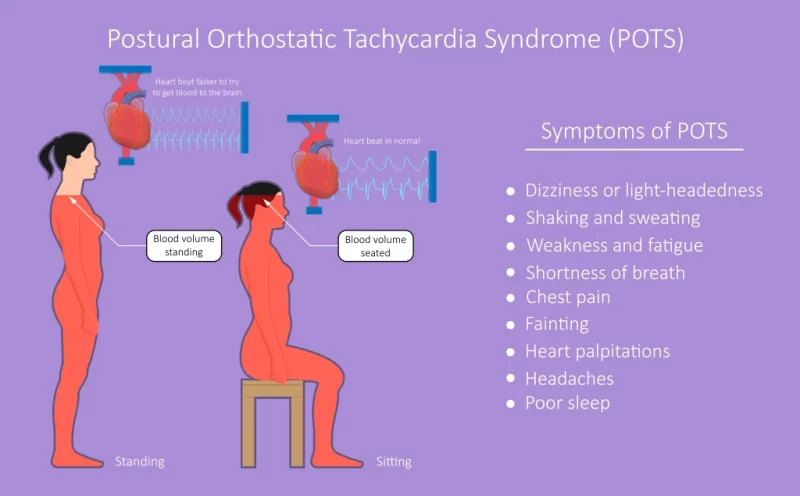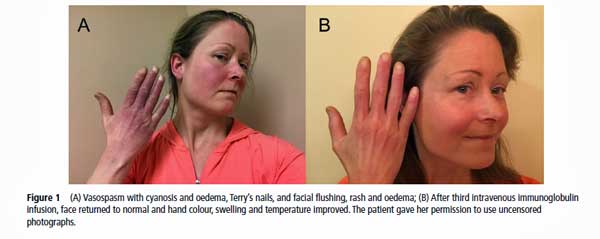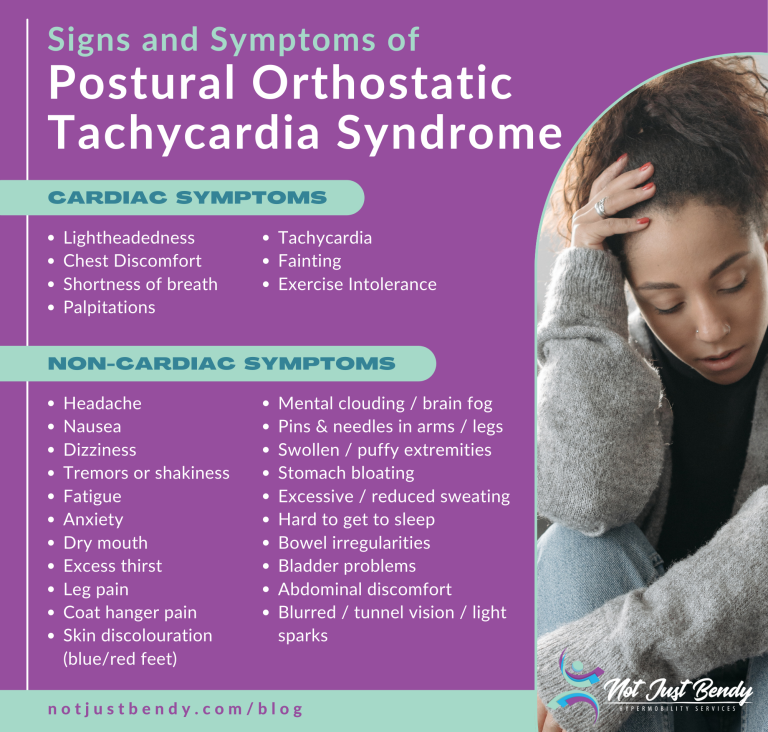POTS: History, Causes. Symptoms, Records, Cure And Treatments, Research, Recent News And Everything To Know

What is POTS?
POTS is a form of dysautonomia, which affects the autonomic nervous system—responsible for regulating heart rate, blood pressure, sweating, and body temperature. The key features of POTS include specific symptoms and an exaggerated increase in heart rate upon standing.
History:
- POTS was first recognized in the medical literature in the 1990s.
- It gained attention due to its puzzling symptoms and lack of a clear cause.
Diagnosis:
-
- POTS is diagnosed when an individual experiences a heart rate increase of at least 30 beats per minute (bpm) or a heart rate exceeding 120 bpm within 10 minutes of standing up.
- Doctors perform a tilt-table test to evaluate heart rate changes while the patient is tilted from a lying to a standing position.

Causes:
- The exact cause of POTS remains uncertain.
- Researchers are investigating various factors, including autonomic dysfunction, blood volume regulation, and autoimmune processes.
- Autoimmune Hypothesis: Recent research suggests that POTS may be an autoimmune disorder.
- Elevated levels of autoantibodies against the adrenergic alpha 1 receptor have also been found in POS patients.
Symptoms:
- POTS is characterized by an excessive increase in heart rate upon standing.
- Other common symptoms include:
- Dizziness
- Lightheadedness
- Fatigue
- Also Brain fog
- Gastrointestinal issues
- Also Pain
- Anxiety

Risk Factors:
- POTS affects primarily women and people assigned female at birth aged 15 to 50 years, but men can also have it.
- Risk factors include significant illnesses (e.g., viral infections), pregnancy, physical trauma (like head injuries), and certain autoimmune conditions (e.g., Sjogren’s syndrome, lupus, celiac disease).
Management:
-
- Lifestyle Changes:
- Hydration: Maintain adequate fluid intake.
- Salt: Increase salt intake to expand blood volume.
- Also Compression Garments: Help prevent blood pooling.
- Exercise: Gradual, low-impact exercise.
- Medications:
- Beta-blockers: Control heart rate.
- Also Fludrocortisone: Retain salt and fluid.
- Midodrine: Constrict blood vessels.
- Also Diet: Smaller, frequent meals to prevent blood pooling.
- Avoidance: Heat, alcohol, and large meals.
- Lifestyle Changes:
Records:
- There is no standardized treatment or cure for POS.
- Available treatments focus on symptom management rather than addressing the underlying disease process.
Research:
- Recent research suggests that POS may be an autoimmune disorder.
- Elevated levels of autoantibodies against the adrenergic alpha 1 receptor have also been found in POS patients.
Body Impact:
Normally, gravity causes about 10% to 15% of blood to settle in the abdomen, legs, and arms when standing. POS disrupts this balance, leading to lightheadedness due to reduced blood flow to the brain.


